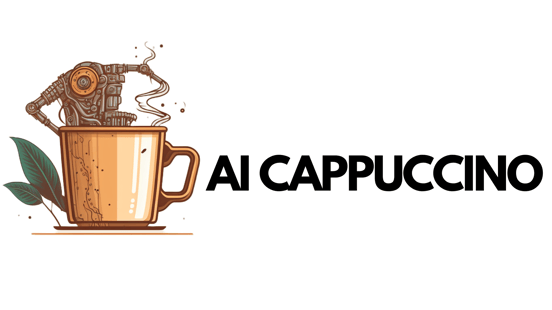Future Unveiled: Life with AI in 2030
Dive into the transformative world of 2030 where AI seamlessly integrates into every aspect of our lives. From smart cities to personalized healthcare, explore how artificial intelligence will redefine our daily routines, work, and personal connections.
LATESTSUSTAINABILITY
Syed Daniyal
2/3/20244 min read


As we stand on the brink of a new decade, the integration of Artificial Intelligence (AI) into our daily lives is not just imminent; it's already underway. By 2030, AI is poised to revolutionize every aspect of our existence, from the way we work and learn to how we manage our health and engage with the world around us. This blog delves into the transformative potential of AI across various domains, painting a picture of what life might look like in 2030.
Work and Employment
The future workplace in 2030 is expected to be a blend of human creativity and AI efficiency. AI technologies will automate routine tasks, freeing humans to focus on complex problem-solving, innovation, and interpersonal dynamics. The fear of AI replacing jobs will likely have shifted towards how AI can augment human capabilities, leading to the creation of new roles and industries that we can barely imagine today.
AI in Education and Learning
Education will be profoundly personalized, thanks to AI's ability to adapt learning materials to the individual's pace, style, and interests. Imagine a world where AI tutors provide students with tailored support, making education more accessible and effective for everyone. This could lead to a significant leap in global literacy and education levels, bridging the gap between different socio-economic groups.
Healthcare Revolution
AI's impact on healthcare could be one of the most significant benefits by 2030. With advanced predictive analytics, AI will enable early detection of diseases, personalized medicine, and robotic surgeries, making treatments more effective and less invasive. The use of AI in mental health could also offer new ways to diagnose and treat mental illnesses, making healthcare more holistic.
Daily Life and Personal Assistants
By 2030, AI personal assistants could evolve beyond simple voice commands to predict and automate many aspects of daily life. From managing schedules to suggesting meals based on nutritional needs and available ingredients, these assistants will make life more convenient. Smart homes will automatically adjust lighting, temperature, and even reorder groceries, seamlessly integrating with personal assistants to create a truly intuitive living environment.
Transportation and Smart Cities
Self-driving cars, already on the horizon, are expected to become the norm, significantly reducing traffic accidents and congestion. Public transport systems will be optimized with AI, making commutes faster and more reliable. Smart cities, powered by AI, will manage resources efficiently, reducing waste and improving quality of life for residents.
Environmental Impact
AI will play a crucial role in combating climate change by optimizing energy use, reducing waste, and helping scientists develop new materials and technologies. Precision agriculture, powered by AI, will increase food production efficiency, reducing the environmental footprint of farming and helping address global hunger challenges.
Ethical Considerations and Governance
As AI becomes more integrated into our lives, ethical considerations and governance will become increasingly important. Issues around privacy, data security, and the ethical use of AI will need to be addressed through robust policies and frameworks. The development of explainable AI will help in making AI decisions more transparent and accountable.
AI is poised to revolutionize the way we live, work, and interact by 2030. Here are five additional points to consider when envisioning the impact of AI on our future lives:
Enhanced Personalization in Everyday Life: AI will drive unprecedented personalization in various aspects of life, from entertainment to healthcare. For instance, streaming services will use AI to curate content precisely tailored to individual preferences, beyond what we see today. In healthcare, AI will enable personalized treatment plans based on a patient's genetic makeup, lifestyle, and even social determinants of health, leading to more effective outcomes and a more personalized healthcare experience.
Seamless Integration of Augmented Reality (AR) and Virtual Reality (VR): By 2030, AI will be integral to the development and application of AR and VR technologies, creating immersive experiences that blur the lines between the physical and digital worlds. Education and training will be revolutionized as students and professionals can engage in lifelike simulations and virtual environments for learning, ranging from historical recreations to complex surgical procedures, all tailored by AI to enhance the learning experience.
Advanced Autonomous Transportation: The evolution of AI will bring about a significant leap in autonomous transportation, not just limited to self-driving cars but also including drones and public transportation systems. AI will manage complex networks of vehicles, optimizing routes, reducing traffic congestion, and improving safety. This will lead to a substantial decrease in transportation-related accidents, a reduction in emissions, and a more efficient use of infrastructure.
Sustainable Living and Environmental Conservation: AI will play a critical role in combating climate change and promoting sustainability by optimizing energy usage, reducing waste, and enhancing conservation efforts. Smart grids, powered by AI, will efficiently distribute renewable energy based on real-time demand and supply. AI-driven systems will monitor and manage water usage, waste collection, and recycling processes, making cities more sustainable. Furthermore, AI will aid in wildlife conservation and biodiversity efforts by analyzing vast amounts of data to track species, predict threats, and inform conservation strategies.
Revolutionizing Agriculture and Food Production: The agricultural sector will undergo a transformation with AI, leading to increased efficiency, yield, and sustainability. AI-driven precision agriculture will use data from various sources, including satellites and ground sensors, to make informed decisions about planting, watering, and harvesting. This will minimize waste, optimize resource use, and significantly increase food production to meet the growing global demand. AI will also enable the development of new food technologies, such as lab-grown meat, reducing the environmental impact of traditional farming and potentially solving food scarcity issues.
Conclusion
By 2030, AI is expected to be an integral part of our lives, making everyday tasks easier and more efficient, revolutionizing industries, and potentially solving some of the most pressing global challenges. However, this future also demands careful consideration of ethical implications and proactive governance to ensure that the benefits of AI are accessible to all and used responsibly. As we navigate this exciting yet challenging landscape, the collective goal should be to harness the power of AI to create a more equitable, sustainable, and prosperous world for all.
